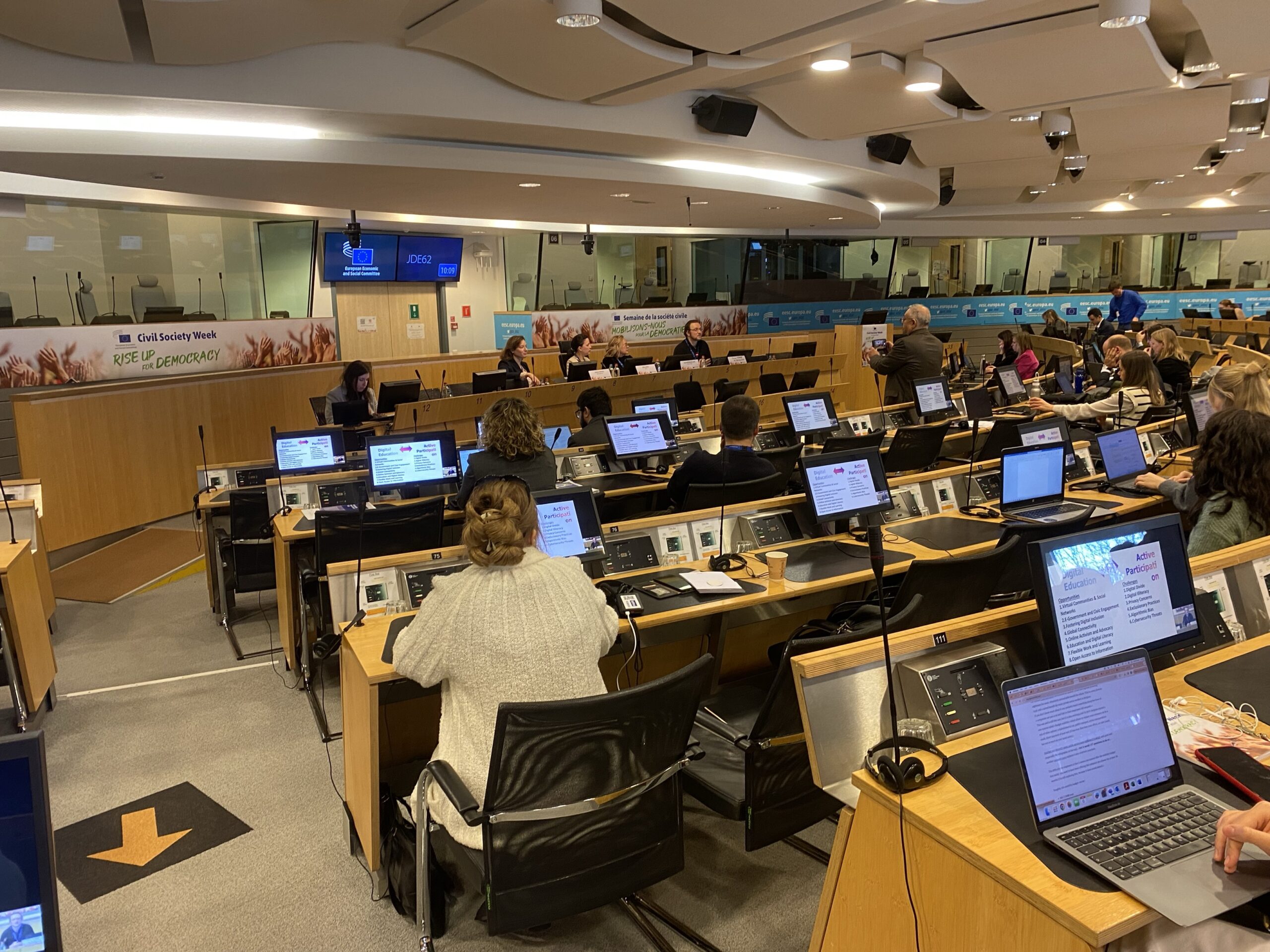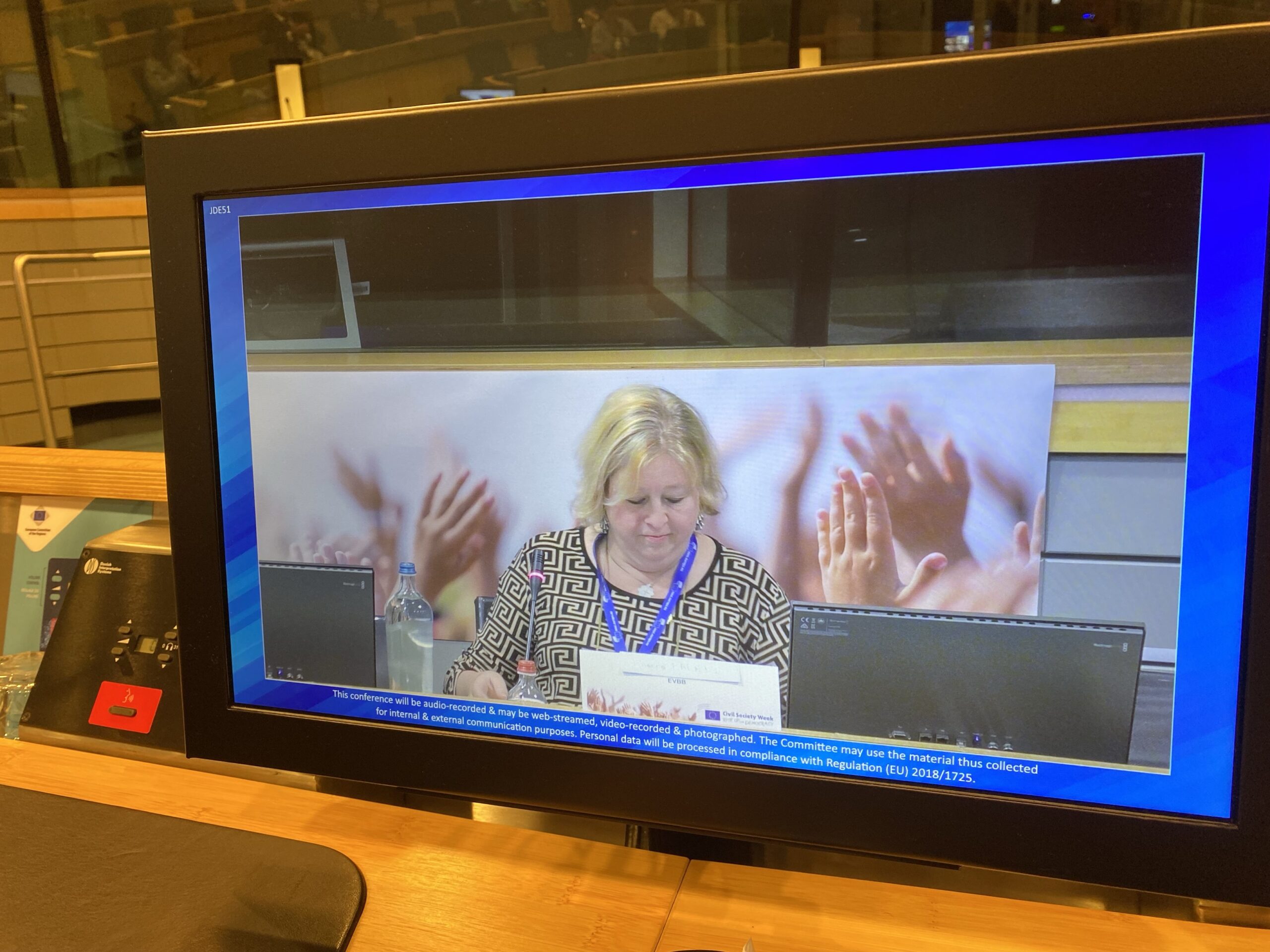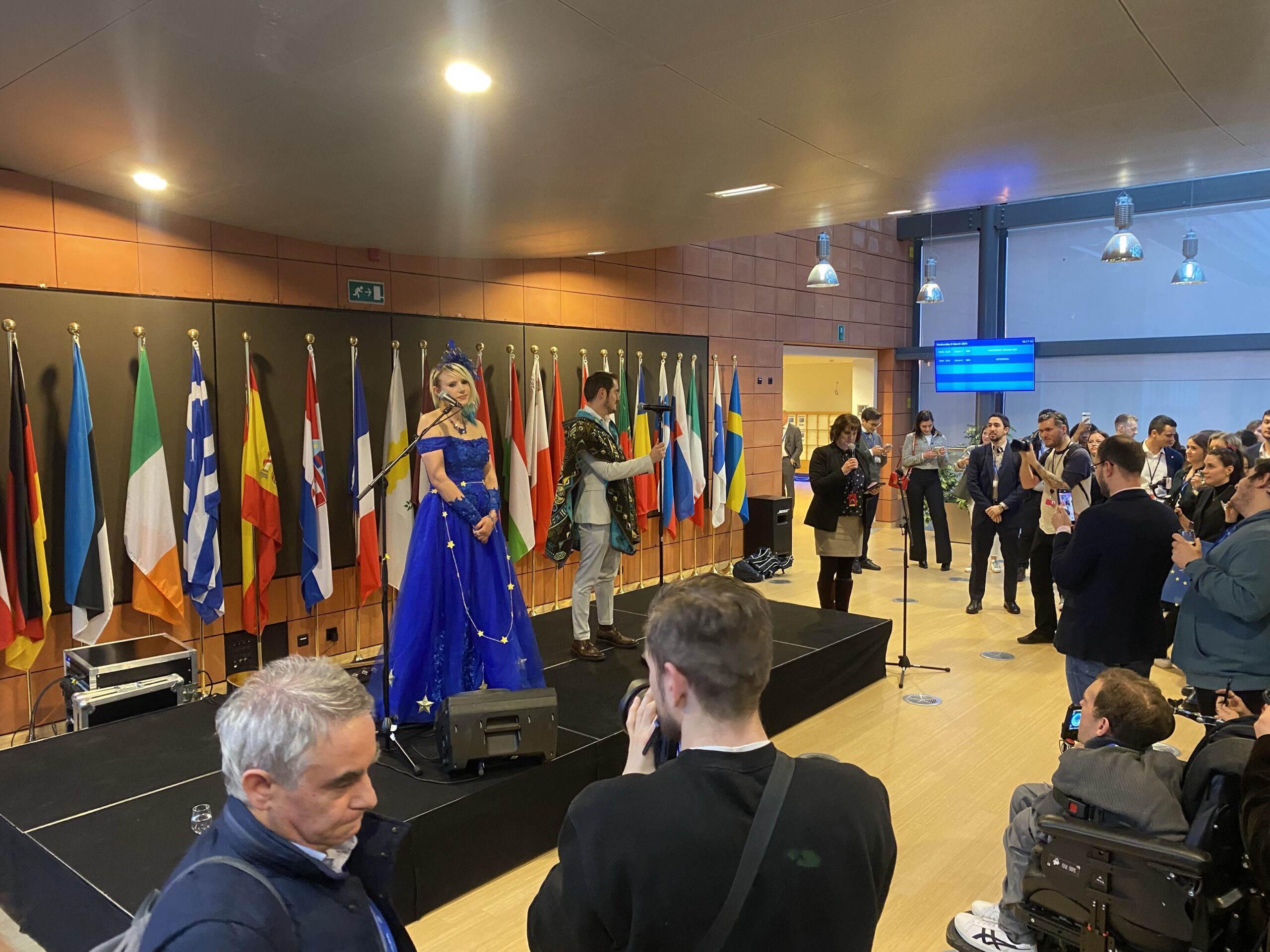From March 4 to 7, 2024, the European Economic and Social Committee (EESC) hosted the annual Civil Society Week under the theme “Rise up for Democracy.” This significant event brought together over 800 participants from diverse backgrounds, including young people, journalists, and representatives from various organizations and EU institutions. The aim was to foster a dynamic discussion on issues crucial to the daily lives and future of Europeans. With the European elections approaching in June 2024, such engagement is essential for ensuring democracy and active citizen participation.
Sotiria Tsalamani and Alfred Pallarca represented EVBB, showcasing their projects and initiatives to other civil society organizations. EVBB co-organized two panels: “Empowering Social Inclusion through VET: Bridging Education and Civic Engagement,” moderated by Johanna Baeyens from Chain 5, an EVBB member, and a workshop titled “Towards a Digital Transformation that Leaves No One Behind,” hosted by Norman Rohner from All Digital, another EVBB member.
Throughout the week, vital dialogues took place, forging connections between various organizations. Citizen participation in EU decision-making is crucial, necessitating the inclusion of their voices through tools like the European Citizens’ Initiative and policy crowdsourcing, supported by robust follow-up and civic engagement activities. Reforming EU treaties to integrate citizen participation mechanisms and enhancing the political influence of initiatives like the European Citizens’ Initiative can boost the legitimacy and ownership of European policies.
During one of the sessions, Oliver Röpke, President of the EESC, emphasized the importance of transparency within civil society groups. He highlighted the need to establish two supportive mechanisms to enhance the structural framework of civil society organizations for greater effectiveness and impact. Röpke also underscored the importance of mobilizing youth participation in these engagements. This sentiment reflects the Committee’s commitment to accountability and adaptability in addressing evolving challenges.
The closing session of Civil Society Week allowed civil society to express their expectations for the next EU mandate and engage in a debate with high-level institutional representatives about their vision for a more democratic Europe. Key elements identified for advancing democracy in Europe included collaboration, inclusivity, transparent governance, trust-building, and youth engagement.




